When Ambassador Dr. Jemal Beker Abdula of the Federal Democratic Republic of Ethiopia arrived in Pakistan, few could have imagined the profound impact he would leave in such a short time. Now, as he departs after completing a remarkable diplomatic tenure, Islamabad’s corridors of diplomacy feel a void — one marked by the absence of his tireless energy, visionary leadership, and genuine warmth that made him one of the most dynamic envoys Pakistan has hosted in recent years.
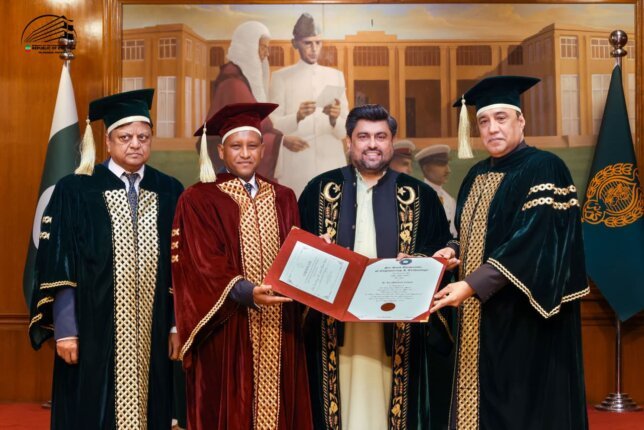
Dr. Jemal Beker’s mission was clear from the start: to redefine Ethiopia–Pakistan relations not just as a diplomatic formality but as a partnership rooted in shared values, mutual respect, and sustainable progress. Over the course of his tenure, he transformed that vision into action — strengthening political, economic, cultural, and environmental cooperation between the two brotherly nations.
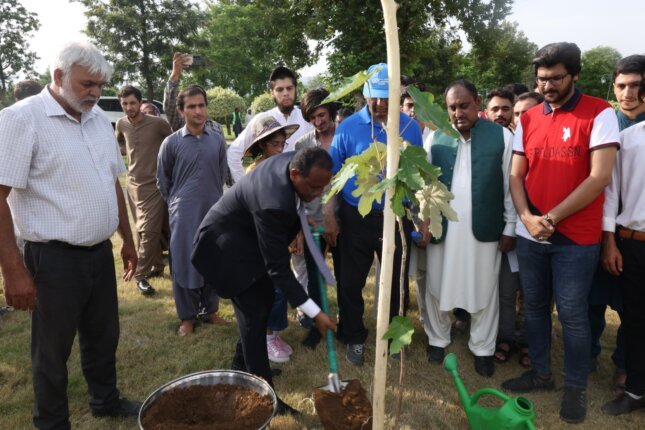
Champion of Green Diplomacy
Among his many achievements, perhaps the most enduring legacy of Dr. Jemal Beker in Pakistan is his pioneering role in advancing Green Diplomacy. He became the face of Ethiopia’s Green Legacy Initiative in South Asia, bringing with him a powerful message of environmental solidarity.
Under his leadership, Pakistan and Ethiopia jointly hosted several groundbreaking events — from the Ethiopia–Pakistan Green Dialogue at COMSTECH Secretariat to the Plant Fraternity Initiative launched in Karachi, Lahore, and Islamabad. These efforts brought together scientists, government officials, students, and climate activists under one vision: to heal the planet through collective action.
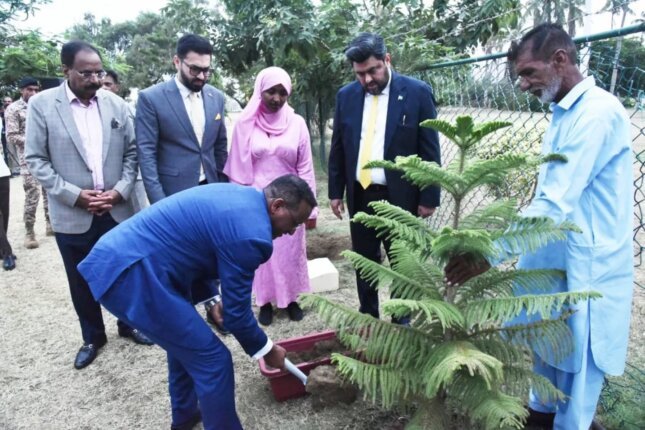
In 2025, Pakistan officially joined Ethiopia’s “Renewal Through Planting” campaign — a global effort to plant 700 million seedlings in a single day. The joint plantation drive organized by the Ethiopian Embassy in Islamabad drew wide participation from Pakistan’s diplomatic, business, and civil communities.
Speaking at that event, Ambassador Jemal called the collaboration “a message of global unity against climate change” — a statement that beautifully summarized his diplomatic philosophy: bridging nations through shared human and ecological values.
His climate leadership was recognized at the highest levels. During his meetings with President Asif Ali Zardari, Prime Minister Shehbaz Sharif, and First Lady Bibi Aseefa Bhutto Zardari, Dr. Jemal highlighted Ethiopia’s reforestation success story and invited Pakistan to collaborate under the twin banners of Ethiopia’s Green Legacy Initiative and Pakistan’s Green Pakistan Vision.
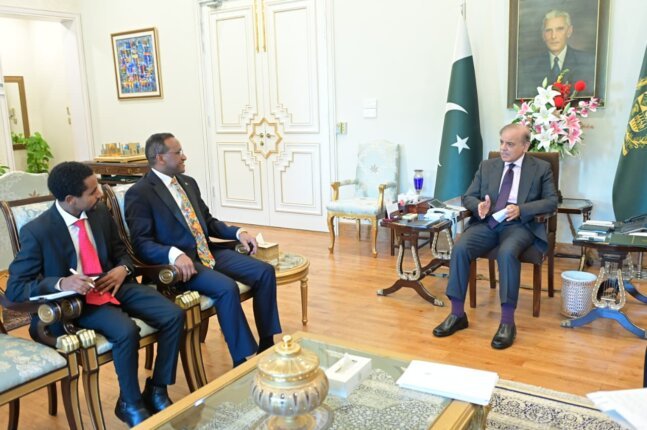
Strengthening Bilateral Relations
Beyond environmental diplomacy, Dr. Jemal was instrumental in revitalizing trade, aviation, and people-to-people ties between Ethiopia and Pakistan. He oversaw key milestones such as:
-
The resumption of direct Ethiopian Airlines flights between Karachi and Addis Ababa.
-
The conclusion of the Bilateral Trade Agreement, unlocking new avenues for commerce.
-
The launch of the Ethiopian Embassy in Islamabad — a cornerstone for sustained diplomatic engagement.
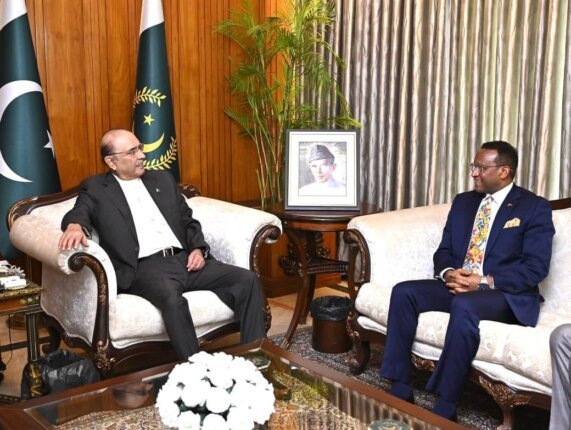
He also worked closely with Pakistan’s Special Investment Facilitation Council (SIFC) and business chambers to encourage Ethiopian investment and participation in bilateral trade fairs. His proactive diplomacy helped secure Ethiopia’s participation in the Single Country Exhibition in Addis Ababa, and he actively promoted agricultural and technical cooperation between the two countries.
In every initiative, Dr. Jemal saw diplomacy not as negotiation but as collaboration. He famously said, “The friendship between Ethiopia and Pakistan is not just between governments — it is between people.”
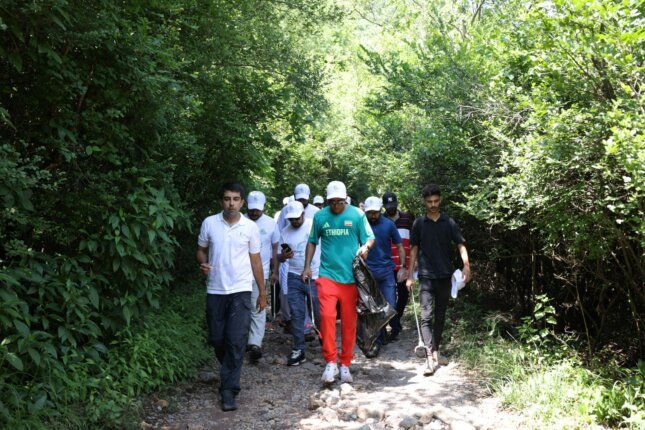
A Friend in Every Circle
It was not only his official duties that earned him respect; it was his personality that won hearts. Energetic, eloquent, and approachable, Dr. Jemal was a familiar face at universities, think tanks, media forums, and cultural gatherings. Whether discussing policy with ministers or sharing coffee with journalists, he carried the same warmth and sincerity that defined his entire tenure.
He encouraged educational exchange, facilitated cultural collaborations, and highlighted Ethiopia’s heritage as a gateway to Africa — urging Pakistani youth and entrepreneurs to “look toward Addis Ababa” for opportunity. His work aligned perfectly with Pakistan’s “Look Africa and Engage Africa” policy, turning rhetoric into reality.

Even during times of tragedy, such as Pakistan’s devastating floods, Dr. Jemal demonstrated empathy and solidarity. He personally visited affected regions, extended Ethiopia’s official condolences, and pledged cooperation in climate resilience and disaster response. His compassion transcended protocol — it reflected the true spirit of African unity.
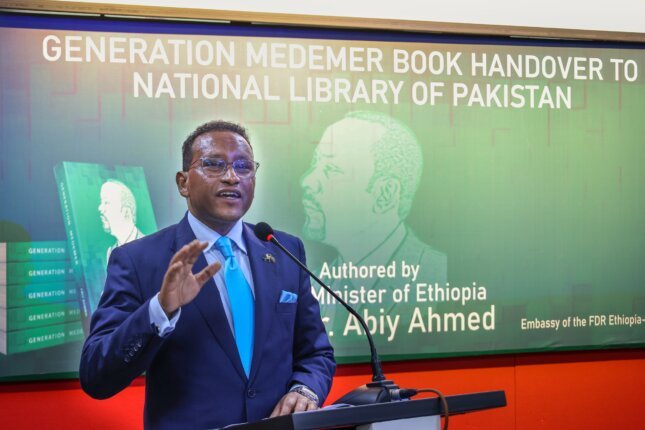
The Legacy of “Medemer”
True to the philosophy of Ethiopian Prime Minister Dr. Abiy Ahmed’s book “Medemer” — which means “synergy” or “coming together” — Dr. Jemal practiced inclusive diplomacy. His advocacy for translating “Medemer Generation” into Urdu was a symbolic and historic gesture, making Ethiopia’s philosophy of unity and collective progress accessible to Pakistani readers.
During the handover ceremony at the National Language Promotion Department (NLPD), he emphasized how “Medemer” reflects the shared spirit of both nations — one that believes in coexistence, cooperation, and mutual respect.
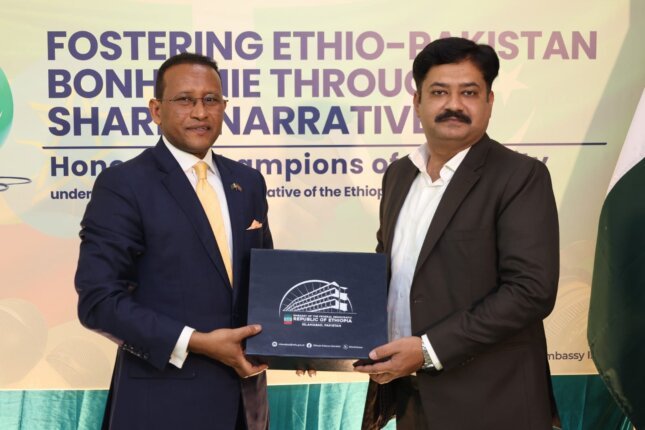
A Farewell, Not a Goodbye
As Dr. Jemal paid farewell calls on Prime Minister Shehbaz Sharif and First Lady Bibi Aseefa Bhutto Zardari, the tone was not of departure but of continuity. Pakistan’s leadership lauded his transformative contributions, while he expressed gratitude for the friendship and hospitality extended to him by the government and people of Pakistan.
His tenure symbolized a new chapter in Ethiopia–Pakistan relations — one rooted in shared dreams of prosperity, sustainability, and solidarity between Africa and South Asia.
For us in the diplomatic and journalistic community, Dr. Jemal Beker Abdula will be remembered not just as an ambassador, but as a visionary bridge-builder, a friend of Pakistan, and a true citizen of the world. His passion, optimism, and charisma have set a new standard for modern diplomacy.
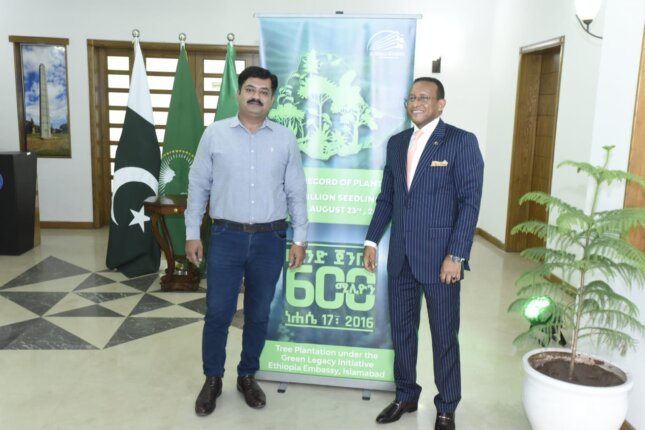
We will miss his presence in Islamabad — his energy at every diplomatic reception, his eloquence in every speech, and his genuine belief in the power of partnership. Yet, the seeds he planted — both literal and symbolic — will continue to grow, reminding us that great diplomats don’t just represent nations; they connect hearts.
Farewell, Dr. Jemal Beker Abdula.
Your legacy in Pakistan will live on — in every tree planted, every friendship forged, and every new bridge built between our peoples.



